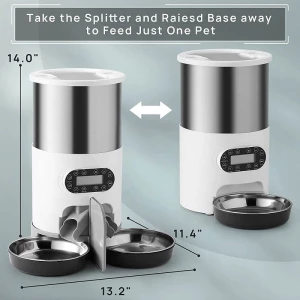Network Video Recorder: A Complete Guide for Buyers in 2025
In today's security-conscious world, a Network Video Recorder (NVR) is an essential tool for businesses and homeowners alike. Whether you're upgrading an existing system or setting up a new one, understanding the latest NVR technology is crucial. This guide covers everything from types and features to sourcing reliable units from China in 2025.
How to Find Reliable Network Video Recorder from China in 2025
China remains a leading manufacturer of Network Video Recorders, offering competitive pricing and advanced technology. To find reliable suppliers:
- Check certifications like CE, FCC, and ISO 9001
- Read customer reviews on platforms like Alibaba
- Request product samples before bulk orders
- Verify manufacturer warranties and after-sales support
Top Chinese manufacturers often provide OEM/ODM services, allowing customization for specific security needs.
What Buyers Should Know Before Buying Network Video Recorder from China
When importing NVRs from China, consider:
- Compatibility with existing camera systems
- Local voltage requirements (110V/220V)
- Language support for interfaces
- Shipping costs and import duties
- Technical support availability in your timezone
Many Chinese suppliers now offer English-speaking support teams and detailed documentation to ease international transactions.
Types of Network Video Recorder
NVR systems come in several configurations:
- Standalone NVRs: All-in-one units with built-in storage
- PC-Based NVRs: Software solutions running on servers
- Hybrid NVRs: Support both IP and analog cameras
- PoE NVRs: Provide power over Ethernet to connected cameras
Each type serves different installation scenarios and budget requirements.
Functions and features of Network Video Recorder
Modern NVRs offer advanced capabilities:
- 4K/8K video resolution support
- AI-powered motion detection
- Remote access via mobile apps
- Cloud storage integration
- Multi-channel recording (8/16/32/64 channels)
- Cybersecurity protections
These features enable comprehensive surveillance with minimal maintenance.
Scenarios of Network Video Recorder
NVRs serve various security applications:
- Retail stores: Loss prevention and customer behavior analysis
- Office buildings: Access control and employee safety
- Industrial facilities: Equipment monitoring and safety compliance
- Residential properties: Home security and package theft prevention
Case studies show NVRs reduce security incidents by up to 60% in commercial settings.
How to Choose Network Video Recorder
Selecting the right NVR involves:
- Assessing camera compatibility and future expansion needs
- Determining required storage capacity (TB calculation)
- Evaluating network bandwidth requirements
- Comparing video analytics capabilities
- Considering cybersecurity features
For most businesses, 16-channel PoE NVRs with 4TB storage offer the best balance of performance and value.
Network Video Recorder Q & A
Q: What's the difference between NVR and DVR?
A: NVRs work with IP cameras over networks, while DVRs connect to analog cameras via coaxial cables. NVRs offer higher resolution and more flexible installation.
Q: How many cameras can one NVR support?
A: Commercial NVRs typically support 8-64 cameras, depending on model. Consider future expansion when choosing channel capacity.
Q: What storage capacity do I need?
A: A 4TB drive stores about 30 days of 1080p footage from 8 cameras. Higher resolutions require more storage or cloud backup.
Q: Can I access my NVR remotely?
A: Yes, most modern NVRs offer mobile apps and web interfaces for remote viewing from anywhere with internet access.
Q: Are Chinese NVRs reliable?
A> Many Chinese manufacturers produce high-quality NVRs that meet international standards. Always verify certifications and warranties.



























